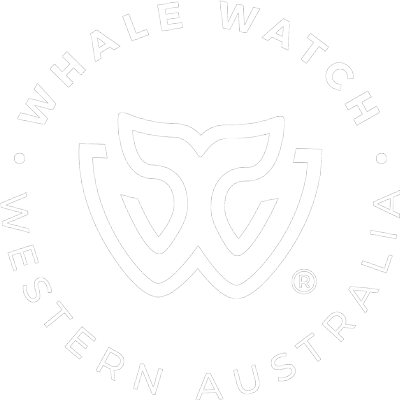Bremer Bay Orca Tours
Orca (Killer Whales) are the largest member of the oceanic dolphin family.
A true apex predator, Orca live in matrilineal pods with the elder females leading the family. The Orca of Bremer Bay live in family pods of 6-20 individuals and during each journey we will introduce you to the families we meet. Our team knows every Orca by name and during your tour will teach you how to recognise each individual and build your Whale Watch skill set and Orca identification knowledge.
Every population of Orca have a specific diet and our research indicates that the Orca of Bremer Bay enjoy foraging on Squid, Beaked Whale and Tuna when available. Other species of baleen whale have also been targeted and our onboard research has documented Blue Whales, Humpback Whales and Antarctic Minke Whales being included in the diet of the Bremer Bay Orca.
Orca Family
Orca live in matrilineal family pods which means that the eldest female who is the matriarch of her family lives with her sons, daughters and daughters offspring. Staying together for life builds an incredible hunting machine as every member within the family pod builds an elite skill set trained over many years with each member having a role to play in the families survival.
The Bremer Bay Killer Whales live in family pods of 6-20 individuals and within the population their is believed to be anywhere from 15-30 or more family pods that we observe every season. Our research is continuing to document these pods and place each identified individual into the correct pod structure. Genetics can then be collected after visual observations to confirm the relationship between each individual.
Orca Culture
Orca can be found in every ocean of the world making them the second most widely distributed mammal on our planet only second to humans. Orca tend to be more numerous in colder waters which hold more nutrition in comparison to the tropics which drive a stronger and more abundant food source. The Bremer Bay Killer Whales have a specific diet as do all populations of Killer Whales around the world. Their diet includes Squid, Beaked Whale, Tuna and other species of baleen whale including Humpback Whale, Blue Whale and Antarctic Minke Whale as documented during our onboard research programs.
The Language of the Orca is unique to each population and is a fundamental part of the daily life of a Killer Whale. Three main vocalisations are known which are clicks, whistles and pulsed calls. During the hunt clicks are used as part of the sonar Orca use to identify food or define objects in their environment. Whistles are continuous and used for social interactions and play an important role in close-range acoustic communications. Pulsed calls are also used for communication with each family pod having their own repertoires.
The dialect of each family pod is unique and must be passed on from one generation to the next through consistent teaching from the elders to the youngsters within the family. The Orca of Bremer Bay are very social with strong bonds between each of the family pods who will often hunt, socialise and rest together. Our research onboard during each tour is vital to better observe and understand the complex social structures and Orca culture of these family pods.

Facts About Bremer Bay
Bremer Bay is located 5 hours south east of Perth, Western Australia in the pristine Great Southern.
It is from this beautiful township we journey to the edge of the continental shelf to discover the oceans apex predator, the Bremer Bay Orca (Killer Whales).
The Bremer Canyon Sub-Basin is host to the largest congregation of Killer Whales in the Southern Hemisphere. It is believed that a very deep Antarctic flow, the Flinders Current, enters the canyon gathering bio-carbons which create a nutrient rich environment to collide with the Leeuwin Current and the topography of the canyon creates an oceanic eddy. This interaction creates nutrient rich upwelling waters where phytoplankton develops and an intense food chain for marine life prospers. Killer Whales are at the top of that food chain with multiple family pods calling this stretch of coastline home numbering between 200-300 individuals.
Our vessels and family team are dedicated to whale watching all year and specialise in operating in harmony with Australian cetaceans. Whale watching should be just that, watching and our moto is to observe and not influence behaviour. Sound is the main communication skill below water and our vessels have been designed to minimise sound pollution in the environments we work in. Our family team have spent many years and thousands of hours building a skill set and interaction procedures that are implemented onboard every tour. The art of whale watching takes time and patience, our family business has dedicated our time to creating a whale watch experience that allows you to Join The Pod® and be welcomed by the whales into their wild environment.
Tour Dates: January – April
‘The Experience Tour’ is 8 Hours (approx). ‘The Extreme Tour’ is 4 hours (approx).
Departure from Bremer Bay, Western Australia
How to Prepare For Your Experience
- We recommend taking motion sickness medication the night prior and on the morning of your tour if you are susceptible. (Please consult your Doctor)
- Children participating in the extended tours must be a minimum of 10 years and some ocean experience is recommended.
- Warm jacket in all weather conditions is advisable.
- Tours are weather dependent so when possible be flexible in planning your travel date.
- Personal camera if required (Professional photographer is onboard).
Departure Time is 8:00 & 9:00
- Bremer Bay Boat Harbour, Swarbrick Road, Bremer Bay
- Please check departure pickup points and times.
- Please arrive 30 mins prior to departure time
- Boarding commences 15 minutes prior to departure.
- Boarding Gate closes 5 minutes prior to departure (No Exceptions)
- Child 10 – 17 years














